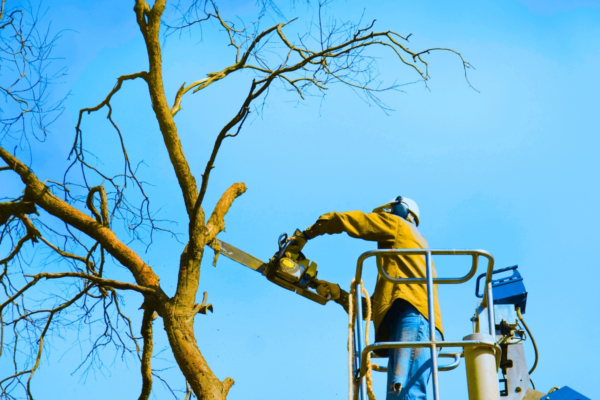
Comparing Loans for Home Renovations

When you think about making changes to your house, you may picture yourself walking into the nearest home improvement store and whipping out your credit card to make your vision a reality. But paying with a high-interest credit card can end up costing you far more than you initially anticipated.
But there are several other ways to handle that project without high interest—without cutting corners on construction. A loan for home renovations can give you the flexibility and funding you need to make your home improvement dreams a reality— without the crazy expensive interest rate.
Before you load up one of those oversized shopping carts at the home improvement store, consider your home improvement loan options.
Put Your Home Equity to Work
Learn more about how you can take advantage of your home’s value for your next home improvement project.
Types of Loans for Home Renovations
With so many choices out there, you may be wondering which is best for you. We’ve rounded up four loan options that may just be perfect for the project you have in mind.
Home Equity Loan
A home equity loan is a great, low-cost way to finance home improvements.
Home equity loans are secured by the equity in your home, so the interest rate is usually lower than a traditional personal loan. And with a fixed interest rate, home equity loans can be a great way to finance larger projects without worrying about payment fluctuations.
Home equity loans range in size, making them a flexible option for projects of any size. Lenders have different minimum loan amounts; for instance, at Amplify the minimum loan amount is $25,000.
The upper loan limit is determined by the amount of available equity you have in your home. In accordance with Texas law, borrowers cannot borrow more than 80% of their home’s value with a home equity loan. The maximum amount you can borrow will come down to your home’s value and how much you still owe on your mortgage or on any other liens you may have.
Home Equity Line of Credit
A home equity line of credit is another great option for borrowers who want to make home improvements. Like a home equity loan, it is secured by the equity in your home and has a low interest rate and minimal closing costs.
A home equity line of credit has several key differences. First, a HELOC is a revolving line of credit. This means you won’t get your loan in a lump sum. Instead, you’ll be able to borrow money as you need it— much like a credit card. You’ll only pay interest on what you actually borrow. This makes it the perfect option for those who aren’t exactly sure how many projects they want to take on or how much they’ll cost.
The second key difference is that a HELOC has a variable interest rate, meaning it changes over time based on market conditions. The good news is that even with a variable interest rate, you’ll still get a much better deal compared to other unsecured personal loan products.
Additionally, a home equity line of credit offers an interest-only payment option. This means that borrowers can choose to make payments only on the interest for a period of time. This can be helpful for borrowers who want to lower their monthly payments.
Line of credit sizes also vary. At Amplify, the minimum HELOC size is $25,000, with minimum $4,000 withdrawals. Like the home equity loan, the upper loan limit is determined by the amount of available equity you have in your home. The more equity you have, the more you will be able to borrow.
Home Improvement Loan
If you’re looking to finance a specific project, you might consider a home improvement loan.
A home improvement loan is a fixed-rate, fixed-payment loan designed specifically for work done through a contractor. It must be completed through a contractor; it’s not possible to get this type of loan without a professional completing the renovation.
Like the loans we’ve already talked about, you must have some equity in your home to qualify for this loan. With terms up to 15 years and a minimum loan amount of $12,000, a home improvement loan sits at the intersection of flexibility and affordability.
Home improvement loans allow you to borrow more than a home equity loan or line of credit would allow you to. With it, you can borrow up to 95% of the available equity in your home. This makes it perfect for those who may have a little equity or already have a home equity loan but need extra funds.
Homeowner Express Loan
Worried that you don’t have enough equity built up in your home to qualify for the other loans? You still have options!
Amplify’s Homeowner Express Loan has no equity requirement, which allows even the newest homeowners to get started on projects around the house. The loan maximum is lower— only up to $40,000— but borrowers benefit from fast funding and no closing costs. In some cases, your loan may get approved and funded in as little as one day! And, because the Homeowner Express Loan is not secured by your home, you don’t have to worry about additional liens placed on your home.
The downside to this loan is that the rates may be higher than those of a home equity loan or line of credit. Even so, rates of a Homeowner Express Loan are often lower than other traditional personal loans. Factors like a solid credit history and excellent credit score can also work in your favor to help you secure the lowest rates.
Get Started on Your Dream Renovation Project
Whether your project is large or small, financing your home improvements with one of Amplify’s home improvement loans can save you money. With low interest rates and no prepayment penalties, those home renovation ideas can become a reality.
Have more questions? Amplify’s home loan professionals can answer questions and help you choose the right loan for your situation.

